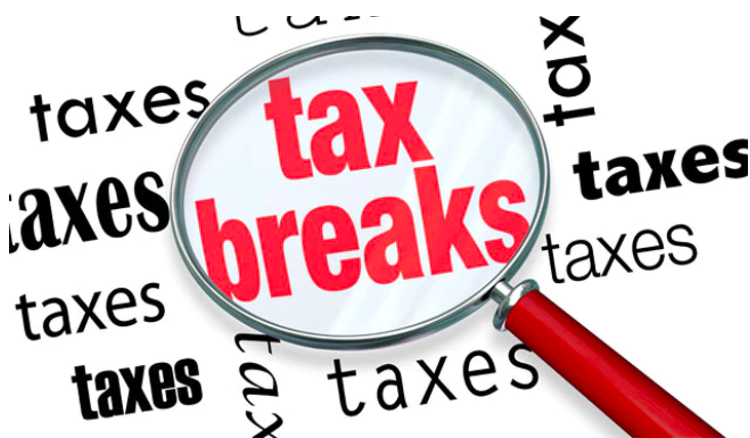
On November 21, the federal government announced two new measures intended to relieve some of the financial stress currently being experienced by most Canadian families and households.tax That financial stress arises, in large measure, from the steady increase in the cost of goods and service over the past two years – and, while inflation has decreased significantly over the past several months, price increases for non-discretionary expenditures like food and housing continue to outpace the general rate of inflation.
The two measures seek to relieve that financial stress in different ways. The first provides an exemption from the Goods and Services Tax/Harmonized Sales Tax (GST/HST) for a wide range of goods purchased by Canadians between December 14, 2024 and February 15, 2025.
The list of goods which will be GST/HST-exempt during that two-month period is as follows.
- Prepared foods, including vegetable trays, pre-made meals and salads, and sandwiches.
- Restaurant meals, whether dine-in, takeout, or delivery.
- Snacks, including chips, candy, and granola bars.
- Beer, wine, cider, and pre-mixed alcoholic beverages below 7% alcohol by volume.
- Children’s clothing and footwear, car seats, and diapers.
- Children’s toys, such as board games, dolls, and video game consoles.
- Books, print newspapers, and puzzles for all ages.
- Christmas trees.
Some of these categories, like snacks, toys, and clothing, obviously cover a huge range of potential goods. A detailed listing of the specific kinds of goods in each category which will be eligible for the temporary GST/HST exemption can be found in a Backgrounder which is available on the Finance Canada website at https://www.canada.ca/en/department-finance/news/2024/11/more-money-in-your-pocket-a-tax-break-for-all-canadians.html.
The tax savings to be realized by the GST/HST holiday will be different in different provinces, because of the way sales tax is structured. In Ontario, Nova Scotia, New Brunswick, Newfoundland and Labrador, and Prince Edward Island, the provincial sales tax is combined with the federal goods and services tax (GST) to create a harmonized sales tax (HST), which is levied at the point of sale and collected by the federal government. The federal GST is levied at a rate of 5% in all provinces; when that GST is combined with provincial sales tax, it results in a combined HST tax rate of 13% in Ontario and 15% in each of the Maritime provinces. In each of these provinces, the tax holiday will exempt eligible purchases from the entire 13% or 15% HST levy.
In all of the other provinces, consumers pay both federal GST of 5% and provincial sales tax (PST) at rates ranging from 6% to 9.975% (except in Alberta, which has no PST), but those taxes are imposed separately. In those provinces, the 5% federal GST is collected by the federal government and the PST is levied and collected by the provincial government. Consequently, the two-month tax holiday will be available in British Columbia, Alberta, Saskatchewan, Manitoba, and Québec only with respect to the 5% federal GST.
Working Canadians Rebate
The second measure announced by the federal government is not specifically a tax break, but a rebate program – the “Working Canadians Rebate”, which will provide a tax-free payment of $250 to each individual Canadian who meets the eligibility criteria. Those criteria, as currently structured, mean that the rebate will be available to individual Canadians who earned up to $150,000 in employment or self-employment income, or received Employment Insurance (EI) or Québec Parental Insurance Plan (QPIP) benefits during 2023, and who have filed their income tax return for 2023 on or before December 31, 2024.
The detailed criteria for receipt of the Working Canadians Rebate by an individual are as follows.
- Worked (as an employee or in self-employment) or received EI or QPIP benefits during 2023 and had $150,000 or less in net income for that year.
- Filed their 2023 tax return by December 31, 2024, and:
- claimed the tax credit for Canada Pension Plan or Québec Pension Plan contributions on employment or self-employment earnings;
- claimed the tax credit for EI or QPIP premiums on employment or self-employment earnings; or,
- reported income from EI or QPIP benefits;
- Is a resident of Canada on March 31, 2025;
- Is not incarcerated for a period of at least 90 days immediately prior to April 1, 2025; and,
- Is not deceased on April 1, 2025.
The rebate will be provided to eligible Canadians, by direct deposit or by cheque, in the early spring of 2025.
The News Release announcing the two new measures can be found on the federal government website at https://www.pm.gc.ca/en/news/news-releases/2024/11/21/more-money-your-pocket-tax-break-all-canadians-and-working-canadians.
